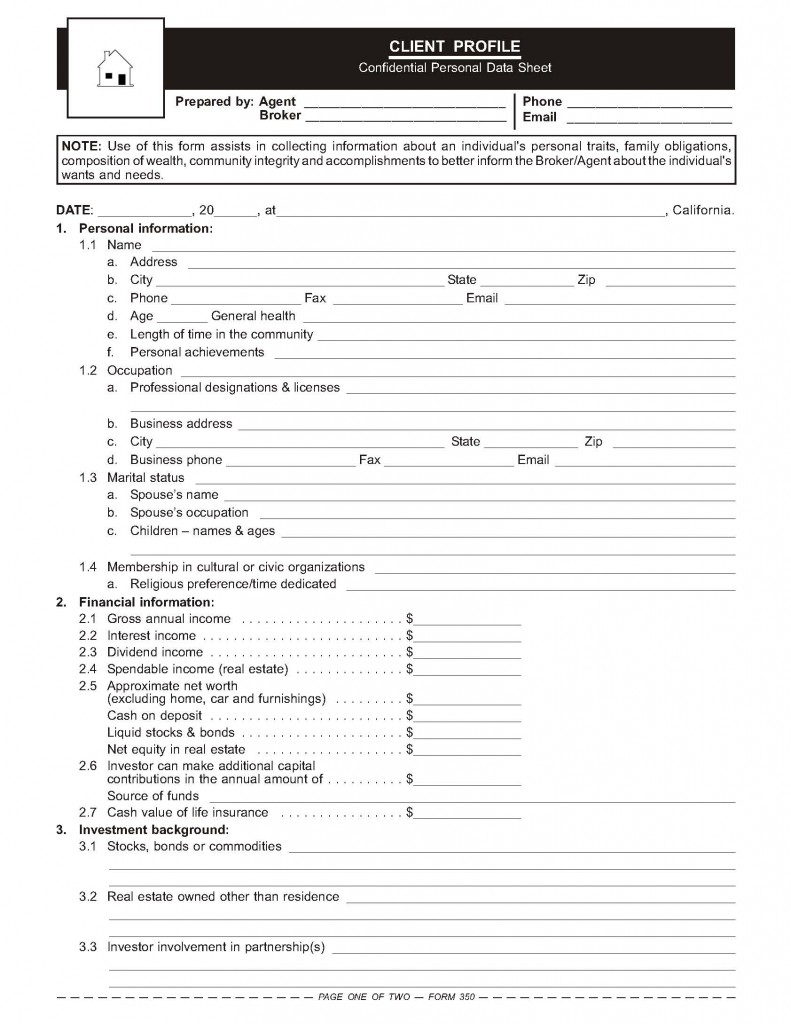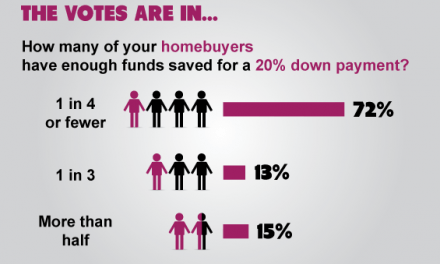Form-of-the-Week: Client Profile – Confidential Personal Data Sheet – Form 350
When forming real estate syndicates, a syndicator’s key to enduring success is to associate with a few congenial investors who:
- desire a long-term investment; and
- appreciate the ownership risks of a cyclical investment.
Investors generally do some amount of background investigations before committing funds. However, they need to be very selective when they consider entrusting a real estate syndicator with the on-going management of the capital they contribute to ownership.
Likewise, a syndicator needs to collect information regarding the attributes and goals of each potential investor they solicit. An analysis of investor character types allows the syndicator to enhance their chances for long-term success in their investment programs.
Personal information on potential investors is typically compiled by the syndicator over time. This information is then retained by the syndicator on a written investor profile form. A separate form is generated for each investor and is reflective of that specific investor’s character type. . The completed forms are retained in the syndicator’s database of prospective investors. [See first tuesday Form 350]
first tuesday’s Client Profile – Confidential Personal Data Sheet assists a syndicator collect information regarding the attributes of each solicited investor. It is prepared to better inform the syndicator about each individual investors’ wants and needs, documenting their:
- personal information;
- educational background;
- family obligations and local longevity;
- composition of wealth;
- community service and integrity; and
- accomplishments. [See first tuesday Form 350]
Before soliciting investors for a particular property acquisition, the syndicator establishes a limit on the number of members who will participate. Three to six cash investors are the preferred range for most acquisitions. The more investors brought into a group, the more likely there will be difficulties communicating with each member and managing co-ownership issues when they arise.
To best maintain equilibrium of influence within the group, all investors contribute the same amount. Thus, no one investor has implicit undue influence to dominate the conduct of group activities. Thus, as a general rule, the syndicator does not allow any one investor to have more than twice as much invested as any other single investor.
Related article:
Brokerage Reminder: Real estate syndication – no securities risk, no JOBS benefit
When soliciting investors, the syndicator considers each individual’s financial capacity and propensity to stay long term with an investment in real estate. If a prospective investor has cash but is not creditworthy, they may be an unreliable long-term participant due to potential future demands on their invested capital by creditors.
Also, if additional contributions are later needed to carry the property through a cyclical negative cash flow period, the financially unstable investor may be unable or unwilling to further contribute.
An individual’s negative creditworthiness usually results from their failure to look ahead. Further, it is a prelude to lost opportunities for all other investors involved in the same investment program. Enter the Confidential Personal Data Sheet as a tool to quickly vet potential investors.
A group of investors from comparable backgrounds is more likely to produce a smooth running investment program in spite of cyclical shifts in the economy. Thus, socioeconomic similarities between investors will safeguard against inconsistent investment attributes and expectations. Never take for granted that all investors have the required temperament, experience and other characteristics necessary to undertake California real estate investments.















